Marrakech Film Festival 2023: Highlights and interviews with Tilda Swinton, Mads Mikkelsen, Viggo Mortensen and more
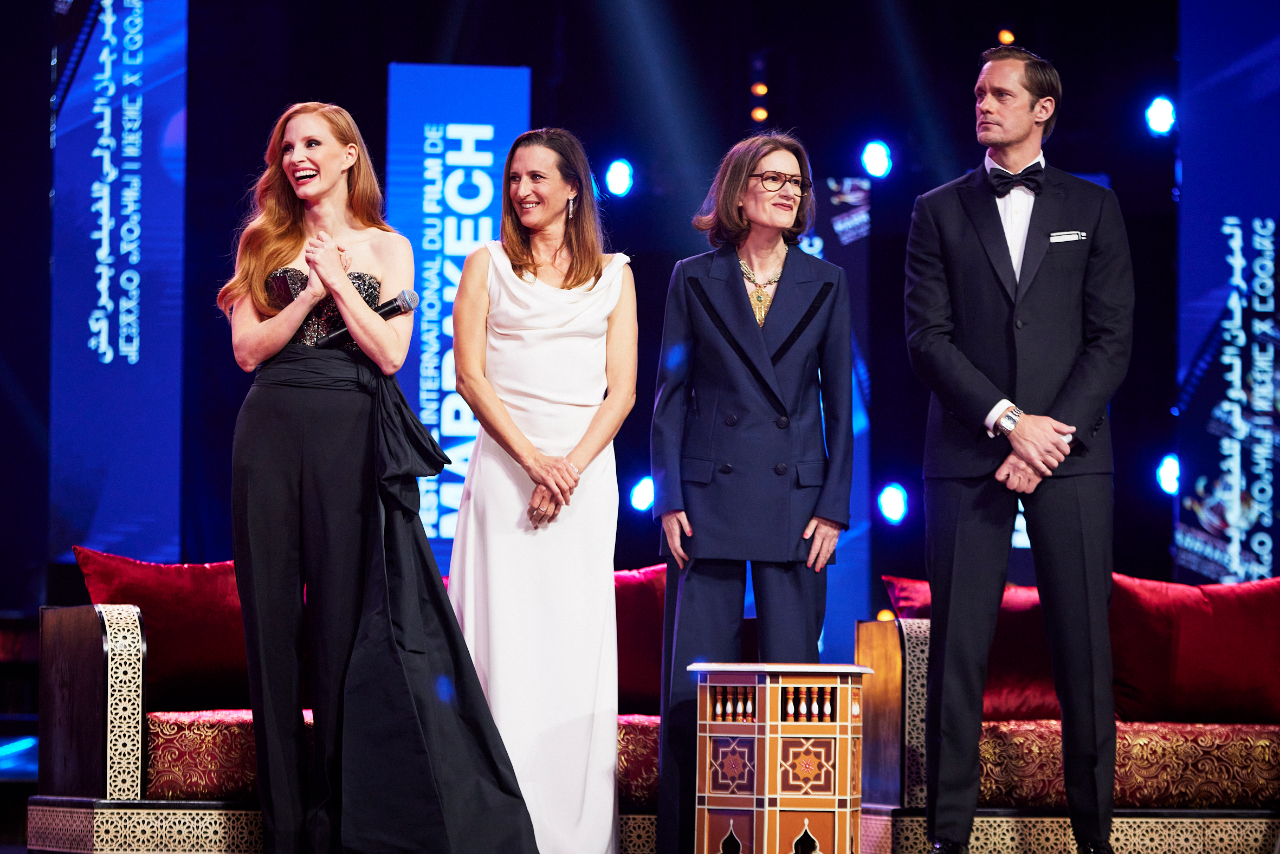
Just finished is yet another illustrious edition of the Marrakech Film Festival. The 2023 instalment was of course pared back from its usual scale out of respect for those impacted by the devastating earthquake that happened earlier in the year, but the event was able to go ahead in a more sober form.
As in previous years, the festival’s 20th-anniversary line-up brought together the best of homegrown cinematic talent with movies and movie stars from across the globe, screening 75 films from 36 countries in total. A standout for this year was the top prize, the Étoile d’Or, being awarded to a Moroccan film for the first time in its history, namely The Mother of All Lies by Asmae El Moudir. The Jury Prize meanwhile was given jointly to Hounds by Kamal Lazraq of Morocco and Bye Bye Tiberius by Lina Soualem of Palestine, which, like The Mother of All Lies, had emerged from the festival’s Atlas Workshops, a vital initiative for incubating emerging talent from Africa and the Arab world. Best Directing Prize went to Sengalese Ramata-Toulaye Sy for Banel & Adama. Tributes were also paid to Mads Mikkelsen and Moroccan director Faouzi Bensaïdi.
The jury this year was led by Jessica Chastain alongside the likes of Camille Cottin, Joel Edgerton, Joanna Hogg, Alexander Skarsgård and Leïla Slimani, plus we heard from many actors and directors during the In Conversation sessions, including Simon Baker, Willem Dafoe, Viggo Mortensen and Tilda Swinton.
During the festival, The Upcoming had the pleasure of sit-down and red carpet interviews with many of the stars. We had the privilege of an in-depth chat with Swinton, who shared her experiences and reflections on her latest film, The Eternal Daughter, delving into its personal significance and the creative process with director Joanna Hogg. Swinton discusses the nuanced exploration of mother-daughter relationships, the unique approach to performance that prioritises authenticity over traditional acting, and the importance of collaboration in her work. She also touched on her selective project choices, driven by meaningful connections and curiosity. Additionally, Swinton expresses optimism about the future of cinema, highlighting its resilience and the enthusiastic engagement of newer generations, contrasting the rise of streaming platforms.
We heard from Mads Mikkelsen in a candid interview about his versatile acting career, spanning both Hollywood and European cinema, particularly the benefits of navigating between blockbuster and art-house films. Mikkelsen addressed being typecast as a villain in American films, attributing it partly to his accent, but emphasised his desire to portray complex characters, transcending black-and-white morality to reflect the nuanced reality of human nature.
Willem Dafoe shared his experiences and perspectives on the film industry, emphasising the importance of directors who create immersive worlds on set, such as Yorgos Lanthimos. He shared insights into his preparation for roles, mentioning the unique and human aspects of his characters. Dafoe also reflected on the evolving nature of cinema and the significance of film festivals in discovering new works and connecting with fellow creatives. He highlights the communal aspect of movie-watching as a crucial, humanising experience, contrasting it with the solitary nature of streaming. Additionally, Dafoe touches on his role in Poor Things, appreciating the novel’s adaptation and the film’s clever commentary on societal norms.
Simon Baker discussed his collaboration with Ivan Sen on the film Limbo, describing it as a unique blend of genres, which he affectionately terms “Outback Noir”. Baker expressed admiration for Sen’s multifaceted role in filmmaking and shared his own immersive experience in shaping his character, Travis. He highlights the importance of addressing themes of racism and the Indigenous community’s struggles in Australia, reflecting on the recent referendum and its political implications. Baker also touched upon reconnecting with his Australian roots through storytelling, hinting at upcoming projects that explore Australian narratives and the significance of international film festivals in promoting diverse cinematic voices.
The legendary Viggo Mortensen reflected on his diverse career choices, from blockbuster hits like The Lord of the Rings to independent films, highlighting his preference for challenging and original projects over mainstream Hollywood roles. Mortensen also discussed his ventures into directing, his collaborations with David Cronenberg and the creative freedom in filmmaking.
Then Lisandro Alonso, alongside Mortensen, spoke about their latest film, Eureka, which screened at Marrakech Film Festival. The film, transcending conventional narratives, invites viewers into diverse American landscapes, particularly focusing on Indigenous communities and differing perspectives on the American Dream. Alonso’s inspiration stems from a desire to challenge historical representations by Western films, leading to a journey across American terrains. Mortensen highlights their seamless collaboration, underpinned by mutual understanding and respect for Alonso’s visionary storytelling, which navigates challenging locations with a compelling narrative.
Joel Edgerton discussed his experiences and learnings from working with director Paul Thomas Anderson, his love for writing and directing, and praised working with George Clooney recently on The Boys in the Boat, and the supportive, enjoyable environment he creates on set. Furthermore, he reflected on the Australian film industry, recognising its independent spirit and the inspiration it offers to new filmmakers.
Camille Cottin reflected on her diverse acting career, from her breakthrough role in Call My Agent to working with Hollywood icons like Tom McCarthy and Helen Mirren. Cottin expressed gratitude for the opportunities that have shaped her career, highlighting the impact of varied roles across comedy and drama. She also discussed her admiration for British humour and the evolving French cinema scene, acknowledging the significance of recent achievements by French filmmakers, especially women. Additionally, Cottin touched on the importance of bravery within the industry, citing Adèle Haenel’s actions as inspirational.
Matteo Garrone shared insights on Io Capitano, which seeks to immerse the audience in the perilous journey migrants undertake before reaching Europe, a narrative often overlooked in mainstream media. By focusing on authentic stories from African cultures, Garrone aims to humanize the migrant experience, challenging perceptions and fostering empathy. He emphasised the collective effort in storytelling, working closely with non-actors who have lived similar journeys, to maintain authenticity. He reflected on how the story has resonated widely, sparking discussions in Italian schools and gaining international acclaim, highlighting the universal desire to pursue dreams despite formidable obstacles.
Joanna Hogg spoke about her latest film, The Eternal Daughter, highlighting the joy and depth found in reuniting with Tilda Swinton, a long-time collaborator. Hogg explored the intricate dynamics of mother-daughter relationships, a theme central to the film, enriched by her and Swinton’s personal connections to their mothers. The creative process, marked by improvisation and trust, allowed for a profound exploration of identity, memory and loss. Hogg also touches on the film’s ghost story elements, drawing inspiration from classic literature, and shares her anticipation for future projects, emphasising a desire to venture into new territories.
We also caught many of the attendees on the red carpet. Matt Dillon delved into his rich acting career and collaborations with many incredible directors and actors, his repeated participation in Marrakech Festival, and his reflections on the evolving film industry, particularly noting the impact of streaming services.
Jessica Chastain shared her experiences and insights from working on Memory, highlighting the unique and liberating filming techniques employed by director Michel Franco. She discussed the significance of jury equality, expressing pride in leading a jury with a historic female majority, and underlined the importance of pushing societal norms towards greater gender and racial equality. Chastain also touched on her role in advocating for fair actor agreements within the Screen Actors Guild (SAG), emphasising the value of collective decision-making and her commitment to supporting the acting community. Additionally, she expressed her affection for Morocco, reflecting on her experiences at the Marrakech Film Festival and her work in the country.
Alexander Skarsgård reflected on his unique experience at the Marrakech Film Festival, particularly the rare luxury of enjoying films as a spectator rather than doing press. He shared insights into his approach to selecting roles, seeking characters that intrigue and challenge him, and how transformative his role in Big Little Lies has been on his career.
Luca Guadagnino stopped briefly to discuss his film Challengers, praising Zendaya and the cast’s portrayal of jealousy, rivalry and love. He cites a compelling script and collaboration with producer Amy Pascal as key motivators. Guadagnino lauds Zendaya’s complex and intelligent persona and her deep cinematic knowledge. He also touches on his friendship with Tilda Swinton, the impact of filming in Greece, and the significance of film festivals in discovering new cinematic languages.
Viggo Mortensen and Lisandro Alonso shared their enthusiasm for presenting their film Eureka to a Moroccan audience, emphasising the festival as a platform for diverse cinematic works from across the world. Mortensen reflected on a retrospective conversation about his career, appreciating the chance to revisit past projects and the memories they evoked.
Joel Edgerton shares his enthusiasm about serving on the jury at the Marrakech Film Festival, particularly for its 20th edition. He highlighted the diversity and balance of the jury panel and expressed eagerness to discover films by next-generation filmmakers. He also mentions the opportunity the festival presents for inspiration amidst a quiet year in the American film industry due to strikes, appreciating the cultural diversity of the films showcased.
Alexander Payne chatted about his latest film The Holdovers and his desire to evoke the 1970s, not just through its setting, but its cinematic style, reflecting his teenage years and the films that influenced him. Payne, deeply involved in the screenplay despite not having screenwriting credit, emphasised the collaborative process with the writer and the importance of casting, particularly praising Paul Giamatti. He touches on the film’s thematic focus on education, its role in combating ignorance and the nuances of moral dilemmas faced by teachers, drawing parallels with his previous work Election, hinting at a potential project adapting a sequel to the film. He also expressed support for young filmmakers and the hope that audiences will perceive the love poured into the making of his film.
Holt McCallany stopped to chat about his upcoming role in Iron Claw, a poignant family drama about the tragic lives of professional wrestlers in 1980s Texas, which explores themes of fatherhood, ambition and the fine line between motivation and control.
Matteo Garrone expressed his excitement and apprehension about the African premiere of Io Capitano, a film partly shot in Morocco, emphasising its authenticity and the challenge of portraying migrants’ epic adventures beyond mere numbers. The film, aiming to humanise migrants’ stories, has garnered attention, including a screening with the Pope and in schools, highlighting its educational value. Garrone hopes for a positive reception in Africa and is optimistic about its Oscar nomination, aiming to reach a broad audience.
We had the chance to hear from Monia Chokri about The Nature of Love, exploring themes of love, social class and the rarity of love stories in French Canadian cinema. Chokri’s narrative centres on a middle-aged philosophy professor caught in a passionate affair, underscoring her intent to fuse love with societal constructs.
We also heard from the film’s star, Magalie Lepine Blondeau, about playing Sofia, how the story navigates complex emotions and societal expectations of love and the fabulous collaboration she shared with the director.
Joanna Hogg expressed her delight in serving on a predominantly female jury, seeing it as a refreshing break and a step towards gender balance in the industry. She relished the opportunity to watch a diverse range of cinema without preconceptions, a rare luxury in her busy schedule. Hogg also touched upon the poignant reception of her recent film, Eternal Daughter, and her fruitful collaboration with Tilda Swinton, hinting at future projects together.
Our photographer Ambra Vernuccio also chatted to some of the stars. Bertrand Bonello discussed his film The Beast showing at the festival, detailing his choice to centre the narrative on a female protagonist, Gabrielle, played by Léa Seydoux, diverging from the original male lead in the novel. Bonello shared the themes of humanity, wisdom and the role of women that run through the story, suggesting that Gabrielle’s journey symbolises a broader commentary on emotional resilience and the future of human connection.
Simon Baker shared his enthusiasm for showcasing his film, Limbo, to a Moroccan audience, highlighting the distinction and novelty it brings compared to traditional Australian cinema portrayals.
Catch more of our interviews from the festival below:
Sarah Bradbury
Photos: Ambra Vernuccio
For further information about Marrakech Film Festival visit their website here.
Check out our coverage of the 2022 edition here and the 2018 edition here.

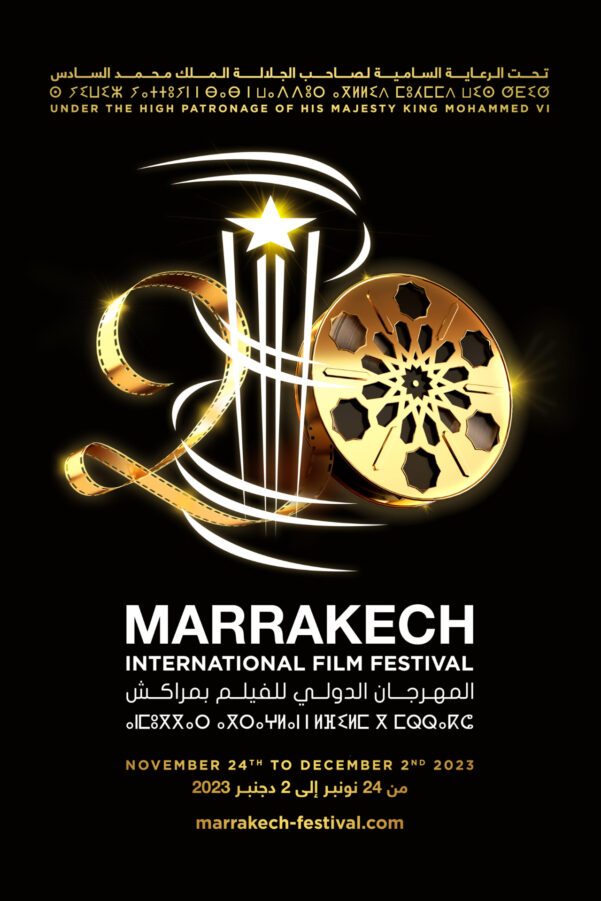
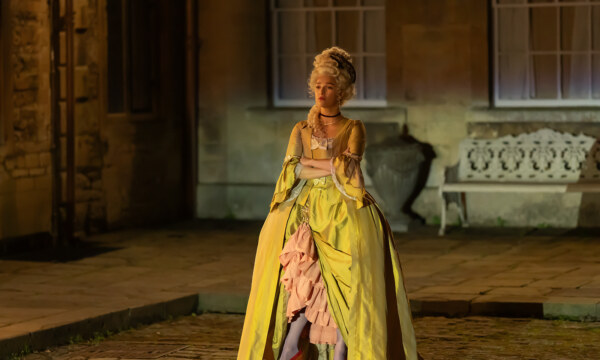
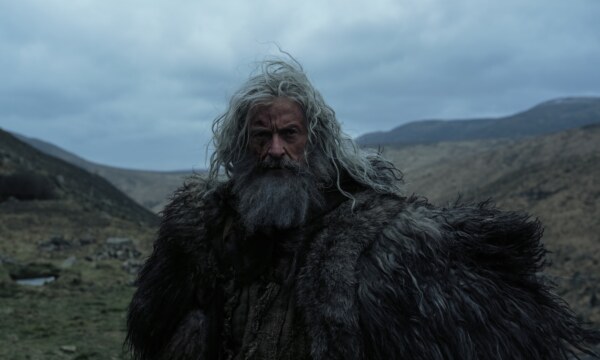
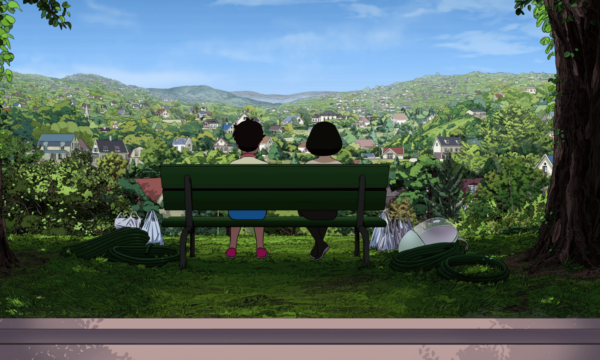
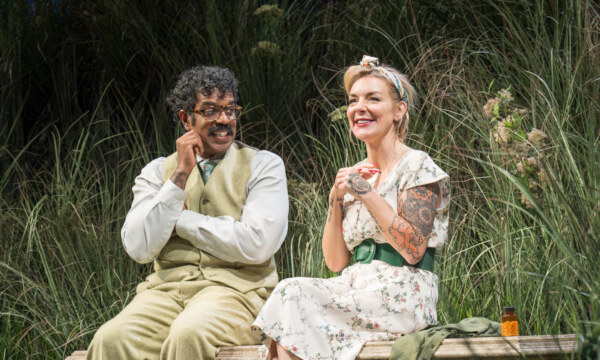
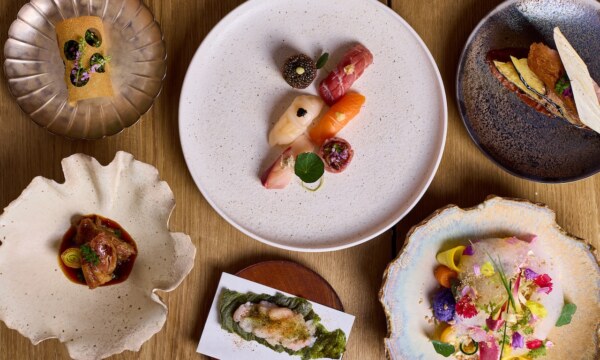
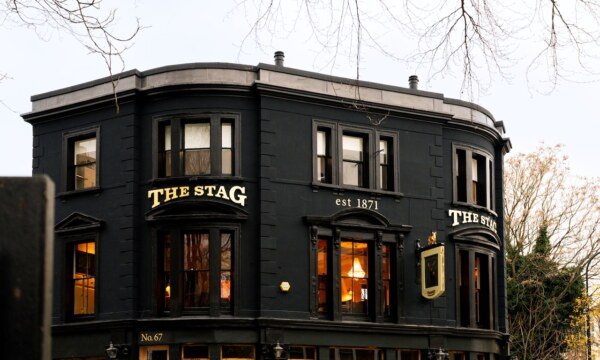


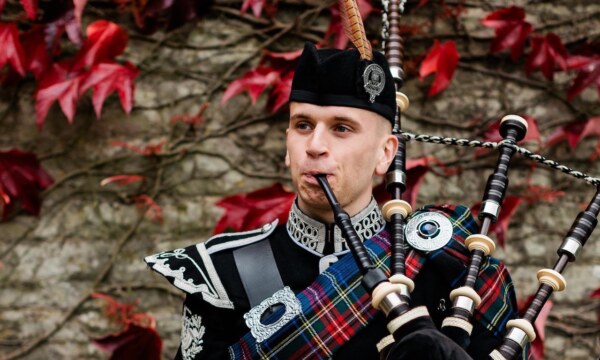
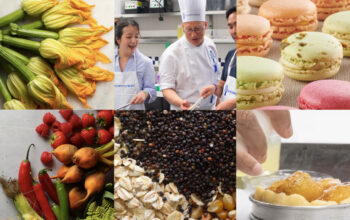
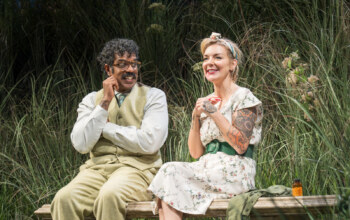
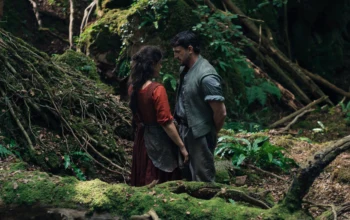
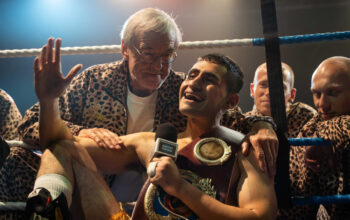
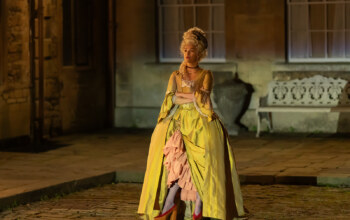
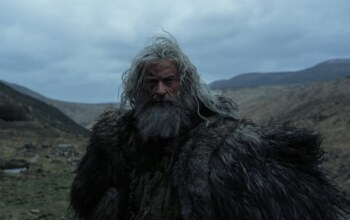
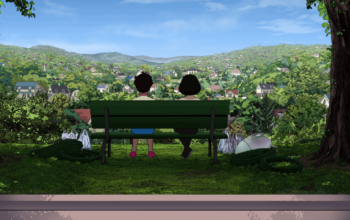





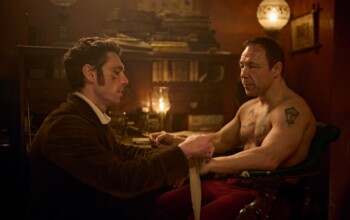
Facebook
Twitter
Instagram
YouTube
RSS